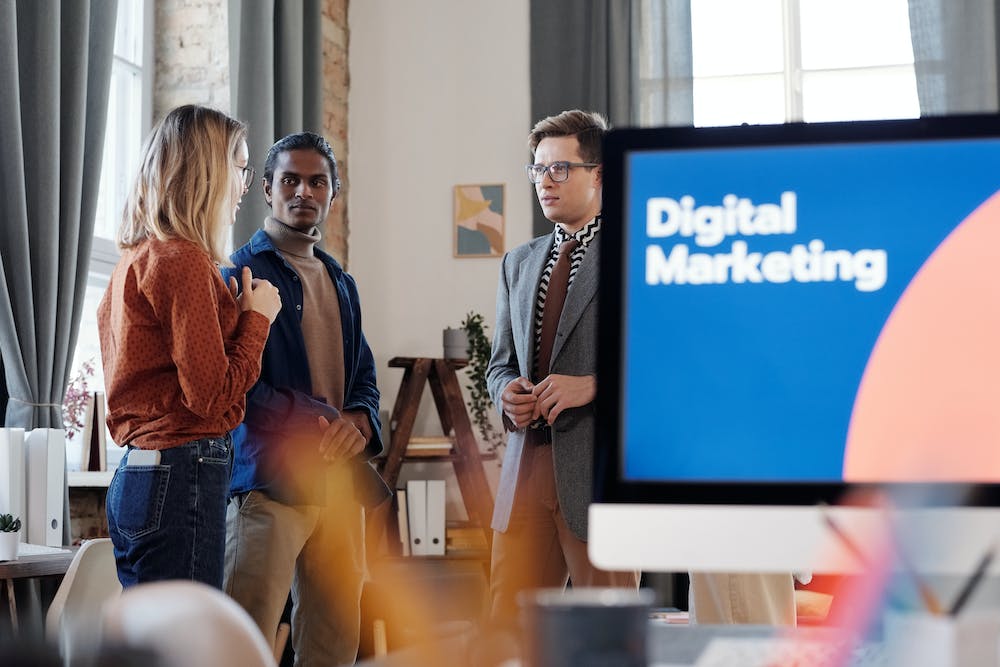
In today’s digital age, IT‘s crucial for businesses to have a strong online presence to attract local customers. With the rise of mobile searches and local intent, optimizing your Website for local searches has become a top priority for businesses of all sizes. Local search engine optimization (SEO) is the process of improving your website’s visibility in local search results, making it easier for local customers to find your business online.
Why Local SEO Matters
Local SEO is essential for businesses that rely on local customers. When potential customers search for products or services in their area, they are more likely to choose businesses that appear at the top of the search results. By optimizing your website for local searches, you can increase your visibility, attract more local traffic, and ultimately drive more sales.
Step 1: Claim Your Google My Business Listing
One of the first steps in optimizing your website for local searches is to claim and optimize your Google My Business listing. Google My Business is a free tool that allows you to manage how your business appears in Google search results and on Google Maps. By claiming your listing, you can provide accurate information about your business, such as your address, phone number, business hours, and website URL.
Optimizing your Google My Business listing can improve your local search visibility and help potential customers find and connect with your business. Make sure to verify your listing, add high-quality photos, and encourage customers to leave reviews.
Step 2: Optimize Your Website for Local Keywords
Keyword research is a crucial component of any SEO strategy, and it’s especially important for local SEO. When optimizing your website for local searches, focus on relevant local keywords that potential customers are likely to use when searching for businesses like yours. Include these keywords in your website’s meta tags, headings, content, and URLs to improve your local search visibility.
For example, if you’re a coffee shop in New York City, you might target local keywords such as “best coffee in NYC” or “coffee shops near me.” By incorporating these keywords into your website’s content, you can improve your chances of ranking for local searches related to coffee in New York City.
Step 3: Create Localized Content
Creating localized content is another effective way to optimize your website for local searches. By publishing blog posts, articles, and other types of content that are relevant to your local audience, you can demonstrate your expertise, attract local backlinks, and improve your local search visibility.
For example, if you’re a real estate agent in Los Angeles, you could create content that highlights the best neighborhoods to live in, provides tips for first-time homebuyers in LA, or offers insights into the local real estate market. By creating valuable, localized content, you can position your website as a valuable resource for local customers and improve your local search rankings.
Step 4: Build Local Citations
Building local citations is another important aspect of local SEO. A local citation is any online mention of your business’s name, address, and phone number. These mentions can appear on local business directories, review websites, social platforms, and more. By ensuring that your business’s NAP information is consistent and accurate across the web, you can improve your local search visibility and help potential customers find and contact your business.
There are many local business directories and review websites where you can create or claim your business listing, such as Yelp, TripAdvisor, Yellow Pages, and more. By building local citations on these platforms, you can improve your website’s local search rankings and attract more local customers.
Step 5: Earn Local Backlinks
Backlinks are a crucial ranking factor for SEO, and this holds true for local SEO as well. Earning high-quality local backlinks from reputable websites can improve your website’s authority, credibility, and local search visibility. Focus on building relationships with other local businesses, organizations, and influencers to earn relevant, local backlinks to your website.
For example, if you’re a restaurant in Miami, you might collaborate with local food bloggers, partner with nearby businesses for cross-promotions, or sponsor local events to earn local backlinks. By earning relevant, local backlinks, you can strengthen your website’s local search presence and attract more local customers.
Conclusion
Optimizing your website for local searches is essential for attracting local customers and driving sales. By claiming and optimizing your Google My Business listing, targeting local keywords, creating localized content, building local citations, and earning local backlinks, you can improve your website’s visibility in local search results and connect with more local customers. Make sure to regularly monitor and adjust your local SEO efforts to stay ahead of the competition and maintain strong local search rankings.
FAQs
What is the difference between local SEO and regular SEO?
Local SEO focuses on optimizing your website for local searches, while regular SEO applies to broader, non-geographically specific searches. Local SEO involves strategies such as claiming and optimizing Google My Business listings, targeting local keywords, creating localized content, building local citations, and earning local backlinks to improve a business’s visibility in local search results.
How long does it take to see results from local SEO efforts?
The timeline for seeing results from local SEO efforts can vary depending on various factors, such as the competitiveness of your local market, the strength of your website’s current authority and trustworthiness, and the quality of your local SEO efforts. Generally, it can take several weeks to several months to see noticeable improvements in your website’s local search rankings and visibility.
Can I do local SEO myself, or should I hire a professional?
While it’s possible to do local SEO yourself, hiring a professional can provide several benefits. A professional can offer expertise, resources, and tools to maximize your local SEO efforts and deliver results more efficiently. Additionally, a professional can stay updated on the latest local SEO trends and best practices, saving you time and effort in staying on top of the ever-changing landscape of local search optimization.





